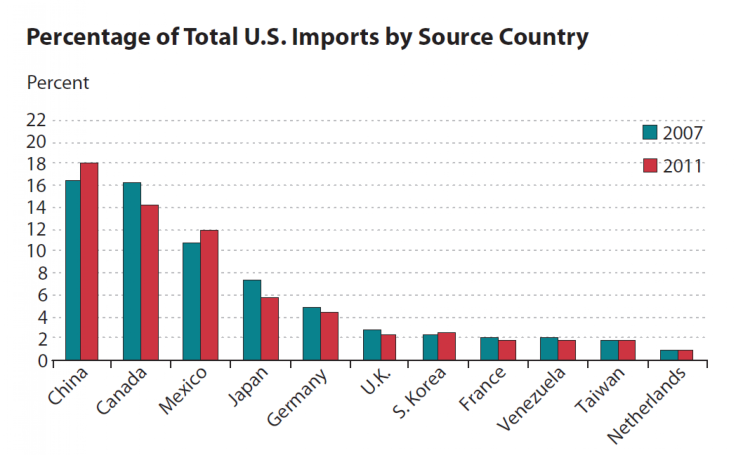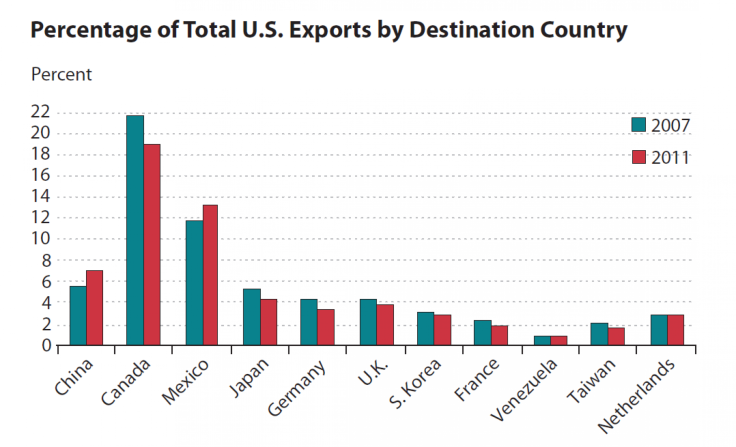In Great Recession, US Trade With Poor Nations Grew, Trade With Rich Nations Shrank

A new study from the Federal Reserve Bank of St. Louis details the change in United States trading partners throughout the Great Recession. In particular, it reveals that U.S. trade with more affluent and developed countries decreased while its trade increased with poorer countries.
Published in Economic Synopses, the study shows that United States imports and exports shifted noticeably during the Great Recession of 2007-2009, both in overall volume and in trade relations with different countries. Examining trade with China, Mexico, Canada, Japan, Germany, the United Kingdom, South Korea, France, Taiwan, Venezuela and the Netherlands, the essay tracks these shifts in trade practices over time.
Author Alexander Monge-Naranjo illustrates that both imports from and exports to poorer nations like Mexico and China increased.
“The two poorest U.S. trade partners, Mexico and China, significantly increased their importance as import sources, and their importance as destinations of U.S. exports increased even more,” the essay reads. “On the contrary, Canada, Japan, Germany, the United Kingdom, and France lost some of their importance.”

While trade diminished and changed in the United States, Monge-Naranjo argues that the Great Recession had little negative effect on poorer nations worldwide. On the contrary, the recession allowed the poorer nations to increase trade with more affluent countries, possibly boosting the poorer nations' economies.
“One of the most interesting features of the Great Recession is that -- contrary to other global recessions -- it was mostly a rich-country phenomenon,” Monge-Naranjo writes. “As such, it might have accelerated -- but not by much -- the long-run growth of the relative importance of emerging markets such as China and Mexico in global and U.S. trade.”
© Copyright IBTimes 2024. All rights reserved.





















